Trump is winning in China
But will our Government let him? Your October 2019 YSA v China update.
You’re about to become incredibly smart, wise, you’ll really really like yourself and you’ll wake up tomorrow with new kitchen skills.
“Whatever must happen ultimately should happen immediately” Henry Kissinger
Table of Contents
- Year-to-date, the U.S. goods deficit with China is at $199b, down 10.2% from the same time last year.
- Trump retaliated to the China retaliation, the U.S will…
- Pricing power of Chinese firms in export intensive industries are seeing negative price growth = lowering wholesale prices to counteract tariffs.
- China has relied on tax cuts and infrastructure spending to remedy its slowing economy. From Jan to June 2019, China cut taxes by $163b
- Guangdong
- Anbang Group
- China has pushed its banks to lend
- Trump announced that he was considering delisting China’s companies from US financial markets.
- Who foots the bill if and when these companies collapse, the pension funds ultimately need to be made whole
- Concerns of infiltrating into US markets
- US pension funds are already fragile
Year-to-date, the U.S. goods deficit with China is at $199b, down 10.2% from the same time last year.
In August 2019, Trump implementation of new 10% tariffs on $300b worth of imports.
Sept = 112b in clothing, footwear, textiles
Dec = 160b in consumer electronics, toys, Christmas ornaments
“Most foreign policies that history has marked highly, in whatever country, have been originated by leaders who were opposed by experts” Henry Kissinger
The existing tariffs on $250b worth of Chinese goods covered about 29% of consumer goods imported from China…
The September 1 tariffs increased that coverage to 69%
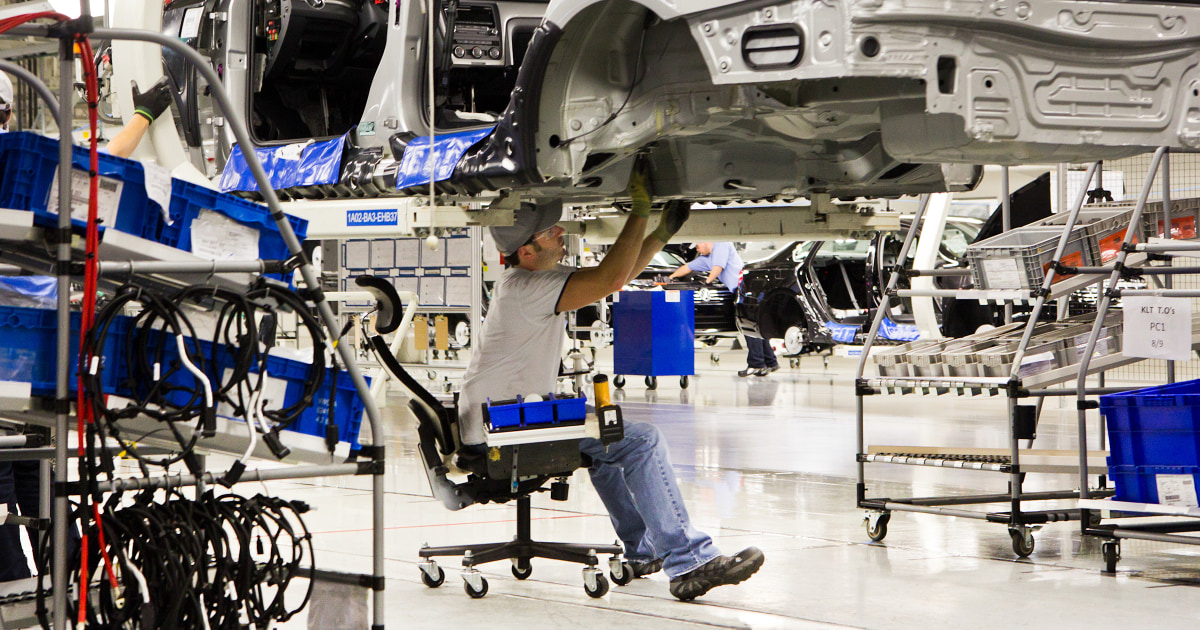
China retaliated by announcing tariffs on $75b of U.S. exports of auto’s, crude oil, agri products like corn, pork, soybeans, to be phased in Sept and Dec
Trump retaliated to the China retaliation, the U.S will…
- Raise tariffs on $550b worth of Chinese imports by 5%
- Increase the existing 25% tariff on $250b worth of Chinese goods to 30% on October 1
- Raise the previously announced 10% tariffs on $300b worth of Chinese imports to 15%
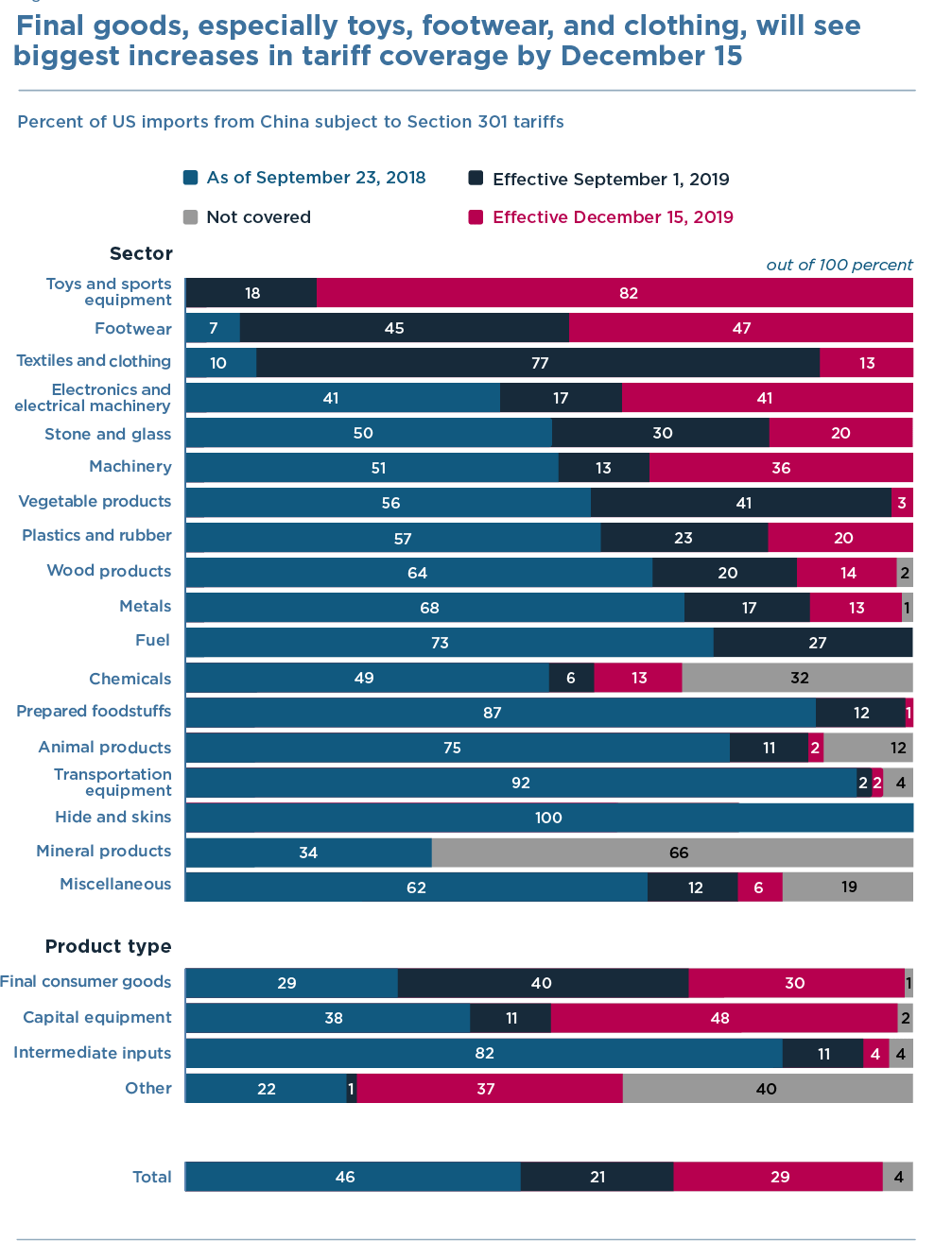
Got All that? Here’s a handy diagram to tape to your refrigerator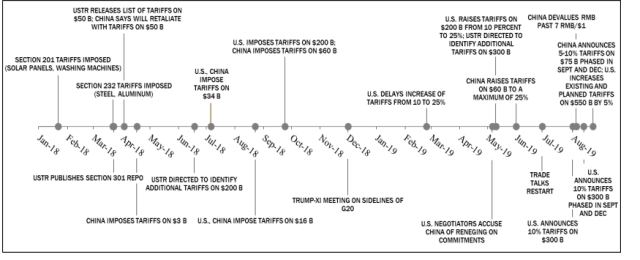
let’s move on…
President Trump called on U.S. companies to “immediately start looking for an alternative to China” and to make more products in the United States.
According to a U.S. China Business Council survey published in August 2019, 87% of American companies with operations in China reported they have not moved or do not plan to move any operations out of China

However, surveys and polling rarely correspond to reality.
“… in conference calls with investors…dozens of executives have signaled plans to further diversify their supply chain…substantially reduce their dependence on Chinese manufacturing….”
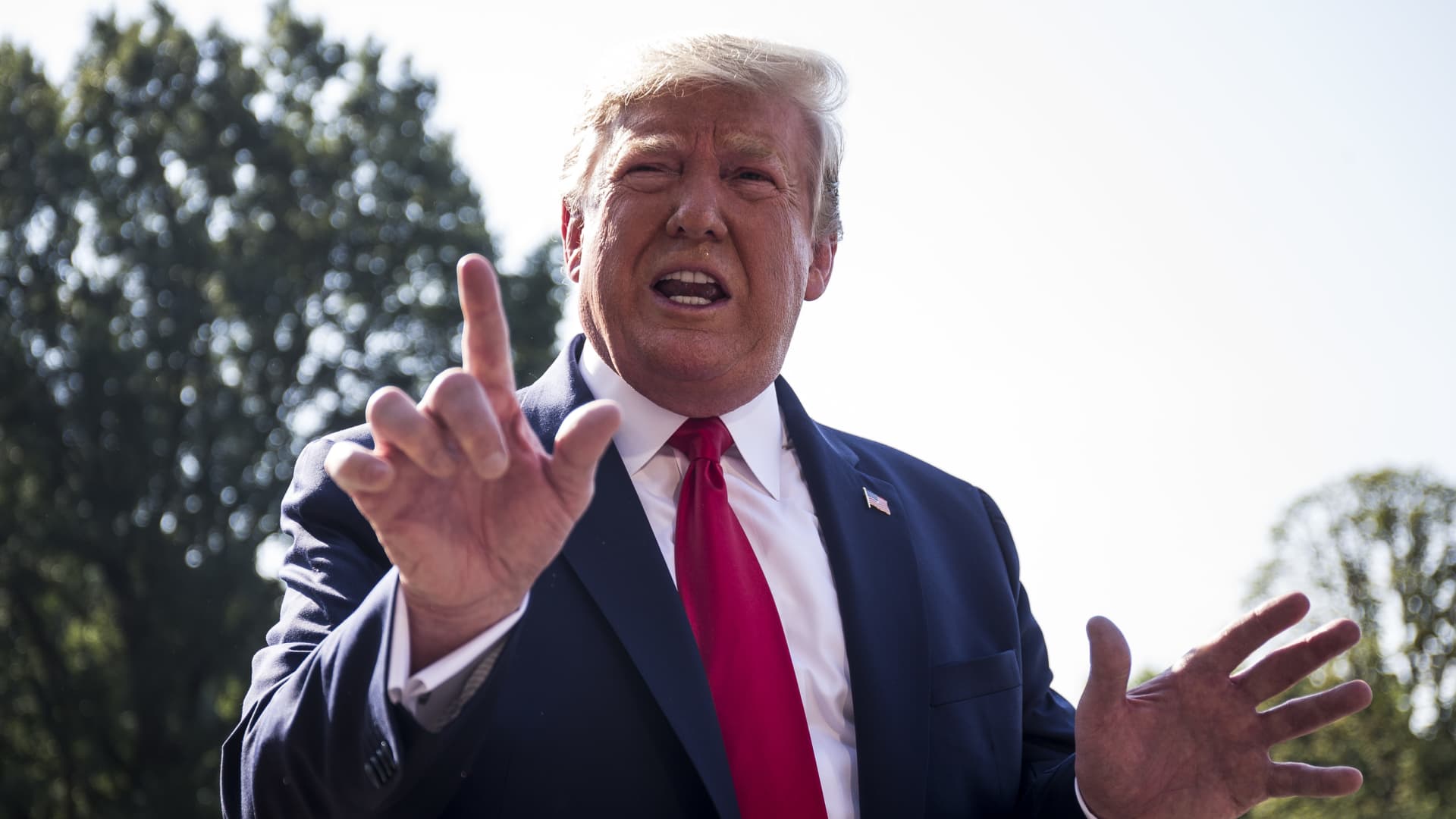
Then this happened in September… “Apple today confirmed that its newly redesigned Mac Pro will be manufactured in Austin, Texas”

Not all companies leaving China are returning to the US, entire new industries are being created in Vietnam and other friendly countries. This is good because they become our new trading partners

Let’s talk about money…
In August, China’s central bank coerced its currency, the renminbi (RMB) to weaken to 7 RMB to the U.S. dollar offsetting the effects of US tariffs. This is the lowest its traded since 2008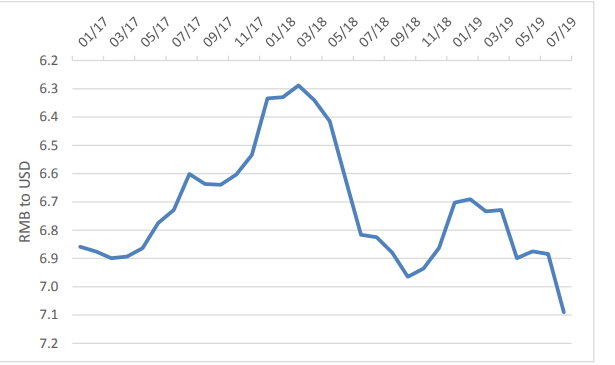
In response, the U.S. Treasury labeled China a currency manipulator. It “will engage with the International Monetary Fund to eliminate the unfair competitive advantage created by China’s latest actions”
The trade war and a weak RMB ain’t pretty… for China. The devaluation is a band-aid but beneath it is internal wounds for China’s economy. Buckle up…
Pricing power of Chinese firms in export intensive industries are seeing negative price growth = lowering wholesale prices to counteract tariffs.
As pricing power weakens, they still need to pay interest on debt and also increasing wages due to internal inflation/food prices
The devaluation increases the credit risk of Chinese corporate debtors who have cash flows and collateral mainly denominated in RMB but have borrowed $3trillion from foreign lenders and counterparties in US dollar-denominated debt, $650b of this matures +/- 2020
The faster devaluation occurs, the more debtors will seek to convert their RMB into dollars in an attempt to limit their losses = a rapid drainage in China’s foreign exchange reserve
What if…the Chinese government didn’t allow allow Chinese debtors to obtain dollars, forcing them to default on their international creditors?

China has relied on tax cuts and infrastructure spending to remedy its slowing economy. From Jan to June 2019, China cut taxes by $163b
Local provinces are caught between fiscal stimulus and tax cuts. The govt can plug deficits for its poorest areas, problems don’t end there Every province (except Shanghai) that has reported fiscal data for the first half of 2019 increased its budget deficit compared to the same period in 2018. Revenues in 11 provinces contracted year-on-year in the first half of 2019 and revenue growth deceleration in 12 others
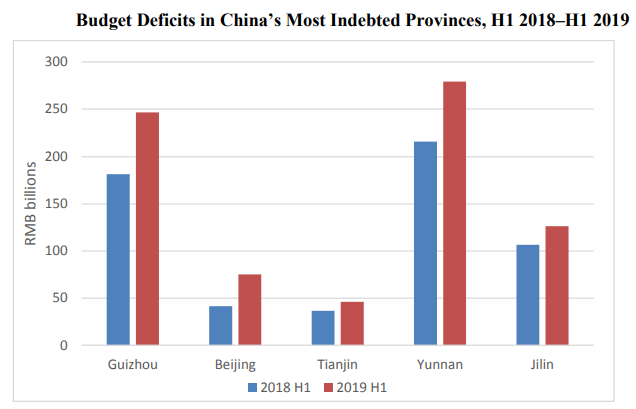
Guangdong
Guangdong is China’s least debt-laden province and its largest provincial budget, their tax revenue growth decelerated from 13% year-on-year in the first half of 2018 to 2.4% over the same period this year. Expenditures accelerated from 3.4% to 13%
Guangdong joined other provinces in selling/leasing state-owned assets to raise extra revenues. Guangdong generated RMB 40b this way in the first half of 2019, a 65% increase over the same period last year.

China’s high debt level, especially among local governments, has caused a slow-down in investment, a high hurdle. Due to excessively high local debt of +/- 70% of nominal GDP, the Chinese govt began a campaign to slow the pace of leveraging
Creditors in China have been forced to extend mo’ money to its debtors to prevent their bankruptcies. Provincial govts have expended billions bailing out co’s, and in doing so, they have become the de facto owners of thousands of previously private companies
Anbang Group
Went on a buying spree acquiring U.S assets, was placed under China Banking and Insurance Regulatory Commission receivership last year, it is just one of thousands of ships that go bump in the night
China’s businesses and citizenry need to invest outside of China into other countries and industries as a hedge of political and currency devaluation risks, but China won’t permit this, they have shut that door. The draw-down of the foreign exchange reserve would undermine the continual rule of the CCP, so the party cannot tolerate it.
Chinese citizens can legally still convert USD $50k from RMB to the dollar per year, they now have to fill out an extensive form stating the purpose of their conversion. Other’s find old fashioned ways…

China has pushed its banks to lend
China is pushing to get loans into firms in sectors prioritized by the Chinese govt and increase credit for high technology sectors. Innovation is expensive and it can be low yield, putting more pressure on indigenous tech companies to steal US tech
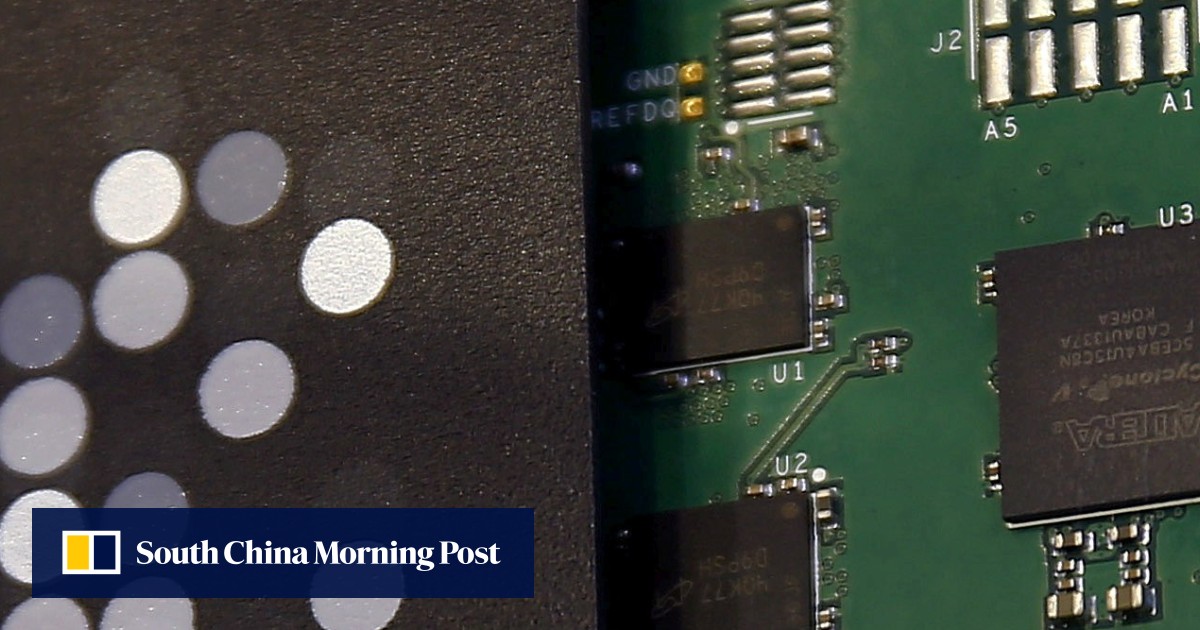
Chinese funds would like to provide more capital to the very profitable real estate sector, however, govt does not want all the money it prints to go into real estate, so it has ordered banks to limit the share of new credit going to real estate
U.S. banks, pension/mutual funds have claims +/- $180b in China liabilities and billions more in bonds issued by Chinese entities, whose cash flows are dominated by RMB. and even more unknown unknowns due to Chinese borrowing from overseas locations and cross guarantees.
U.S. banks, pension/mutual funds should be commanded to conduct a transparent audit of their exposure to assets, cash flows and guarantees with risks denominated in RMB.
Trump announced that he was considering delisting China’s companies from US financial markets.

One day there will be a post-mortem on $BABA but we can start early, my team has looked at sequential quarters for years to glean insights on volumes, sales, growth, real estate, actual/possible acquis, analyst Q and A’s etc,..
There is accounting failures, oddly booked sales, financials that don’t reconcile, The forensics by @DeepThroatIPO are painstaking, funny and scary

There are additional problems, $BABA stock is supported by undisclosed offshore funds that soak up big chucks of stock that hit the bid, this occurs away from SEC purview/authority. What happens if that mysterious money stops supporting its unnaturally high price?
Who foots the bill if and when these companies collapse, the pension funds ultimately need to be made whole
Banks/mutual/pension funds will sue for fraud and likely win, but being awarded money is different than collecting it
Class action suit says toymaker CEO, CFO profited from ‘artificially inflated’ stock.
Concerns of infiltrating into US markets
“…main retirement savings fund to reverse a decision that they say would shift billions in investments into Chinese companies“

US pension funds are already fragile
“CalPERS said Monday that it has not yet set a start date for Meng, who has served as deputy CIO of the State Administration of Foreign Exchange in Beijing for the past three years”
Ben Meng CIO
Meng is returning to the California pension fund after serving as deputy CIO of China’s State Administration of Foreign Exchange for the past three years.
Oligarchs gotta be oligarch’ing. “US billionaire Michael Bloomberg has spoken out in support of Chinese President Xi Jinping, saying Xi is “not a dictator” and the Communist Party “listens to the public” on issues like air pollution…”
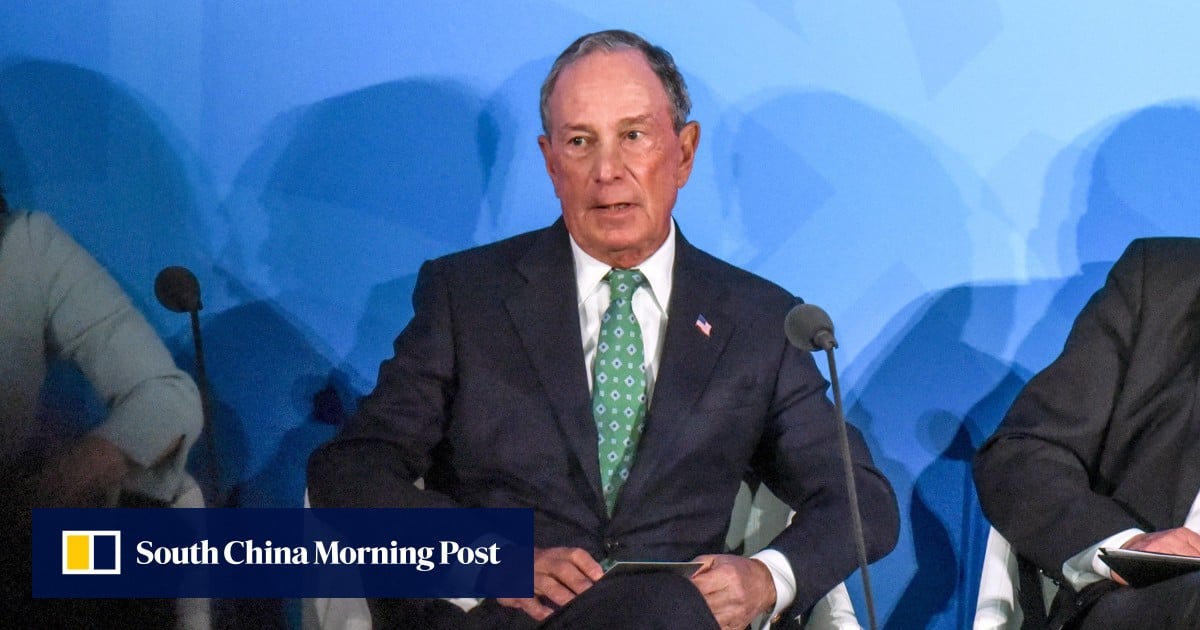
Xi is a dictator and he isn’t listening to the public, they’re locked away. “Arrests, trials and prison sentences have surged in Xinjiang, where Uighurs and Kazakhs also face re-education camps”

We did it folks. You are the chef of the future. Now go out, core and apple and impress your friends.
The end?

